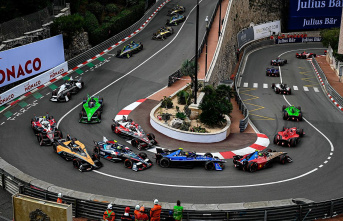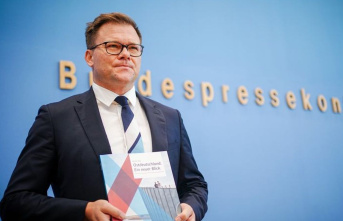During the energy crisis, coal-fired power plants that are brought back from the reserve should be allowed to stay on the grid longer. The federal government agreed on this. Lignite-fired power plants can also return to the electricity market on October 1st.
The aim is to further strengthen the provisions for the coming winter, as announced by the Ministry of Economic Affairs. With more coal-fired power plants in power generation, the aim is to reduce power generation from gas and thus save gas.
New deadline until the end of March 2024
So far, hard coal-fired power plants that come back from the so-called grid reserve can participate in the electricity market for a limited period until April 30, 2023. If the gas alert level remains or the emergency level is declared, the power plants from the grid reserve can now remain on the market until March 31, 2024, according to the Ministry of Economic Affairs. This should make the return to the market easier to plan and therefore more attractive.
To date, only two hard coal-fired power plants have returned to the market from the reserve: Mehrum in Lower Saxony and Heyden in North Rhine-Westphalia.
On the basis of the law, the energy company Steag wants to continue running two power plants in Bergkamen (North Rhine-Westphalia) and in Völklingen (Saarland), which were actually supposed to be shut down at the end of October. In addition, the company in Saarland wants to bring two more power plants from the grid reserve (Bexbach and Weiher) back onto the market by November at the latest.
The energy company Uniper is still checking whether it will put a hard coal block in Gelsenkirchen into reserve at the end of October or continue to operate it. A possible return of three Uniper oil-fired power plants (Irsching 3/Ingolstadt 3 and 4) from the reserve is currently not planned. "The systems are older," explained a company spokesman.
Lignite-fired power plants can also return for a limited period
The Federal Cabinet also decided that lignite-fired power plants can return to the market from the so-called security stand-by on October 1st. According to the ministry, the LEAG power plant blocks Jänschwalde E
Economics and Climate Protection Minister Robert Habeck (Greens) had repeatedly described the return of climate-damaging coal-fired power plants as bitter news with a view to climate protection. However, the return is inevitable because of the consequences of the Russian war of aggression on Ukraine on gas supplies.
FDP parliamentary group leader Christian Dürr told the German Press Agency: “It is good that we now agree that the electricity capacities must be significantly expanded. The extension of the coal-fired power plants to March 31, 2024 gives the operators planning security when restarting the plants who are in reserve." The coal-fired power plants would make an important contribution to easing the tension on the electricity market over the next two winters, Dürr said. "Everything that can produce electricity should now be connected to the grid, because prices have to come down."
FDP faction leader wants lifetime extension at AKW
Dürr again demanded that the way be cleared "urgently" for an extension of the service life of the three nuclear power plants still on the grid. "What applies to coal-fired power plants applies even more to climate-neutral nuclear power plants. The three nuclear reactors should also remain connected to the grid until 2024, because we will need every kilowatt hour over the next two winters. Stretching operation will by no means be sufficient. We need new fuel rods."
Habeck said on Tuesday that as of today, his ministry is assuming that the Isar 2 and Neckarwestheim nuclear power plants will continue to be connected to the grid in the first quarter of 2023. He had agreed with the operators of the nuclear power plants on the key points for implementing the planned deployment reserve by mid-April 2023 at the latest.








